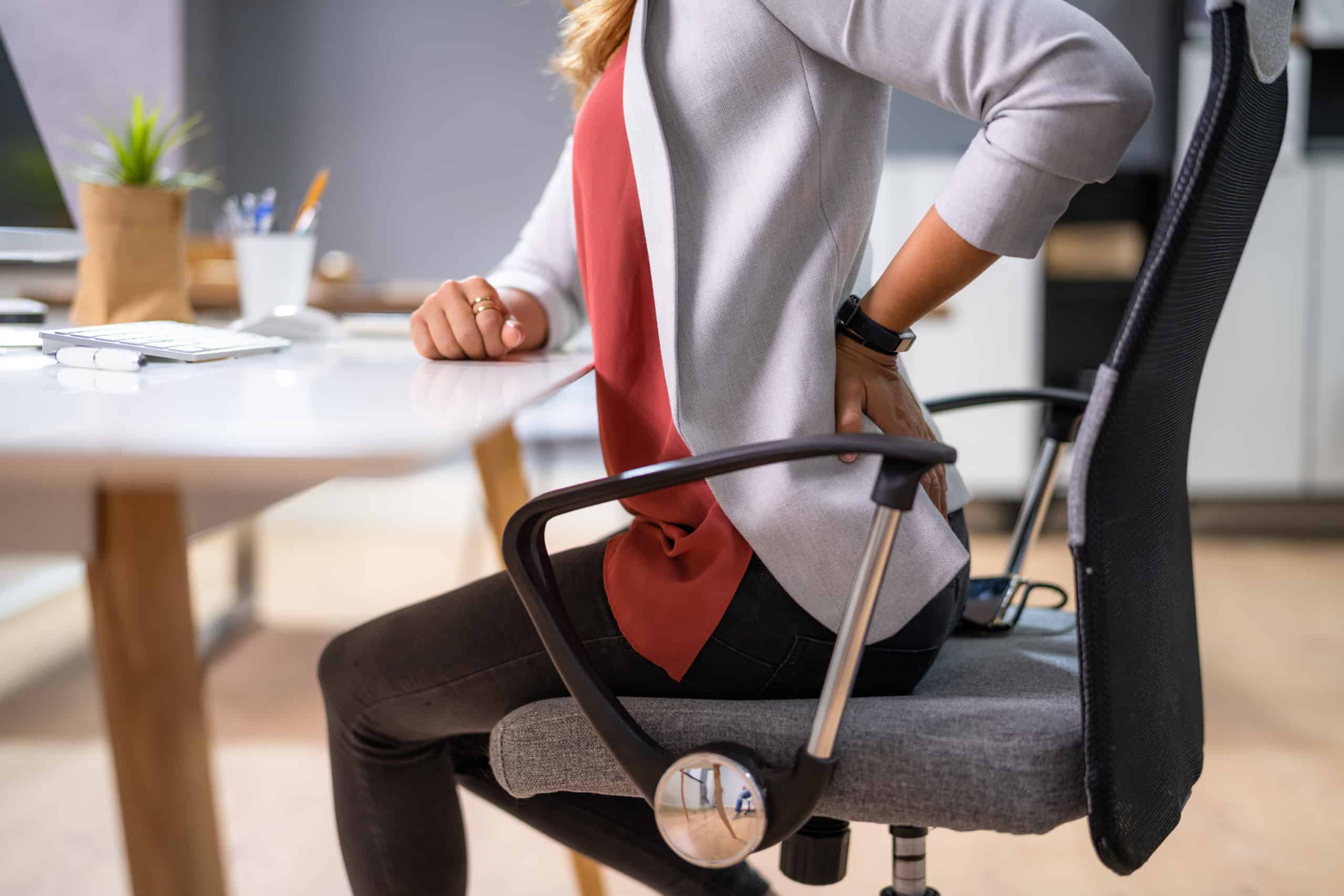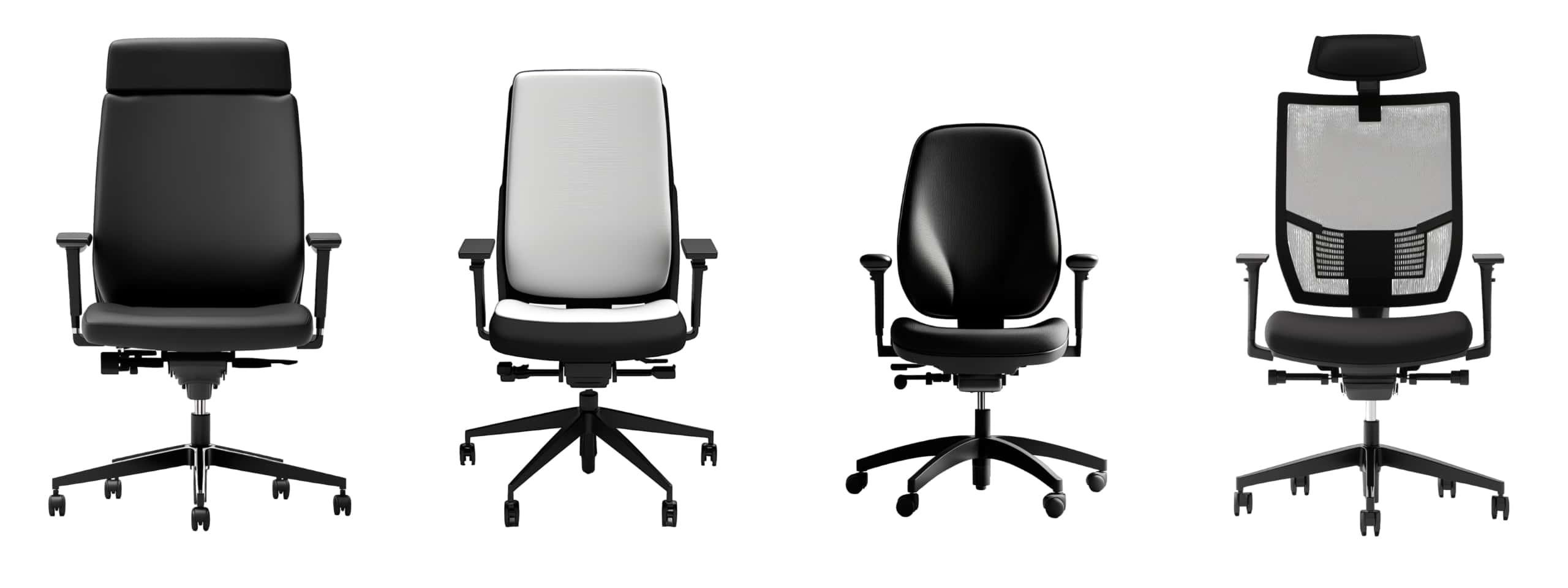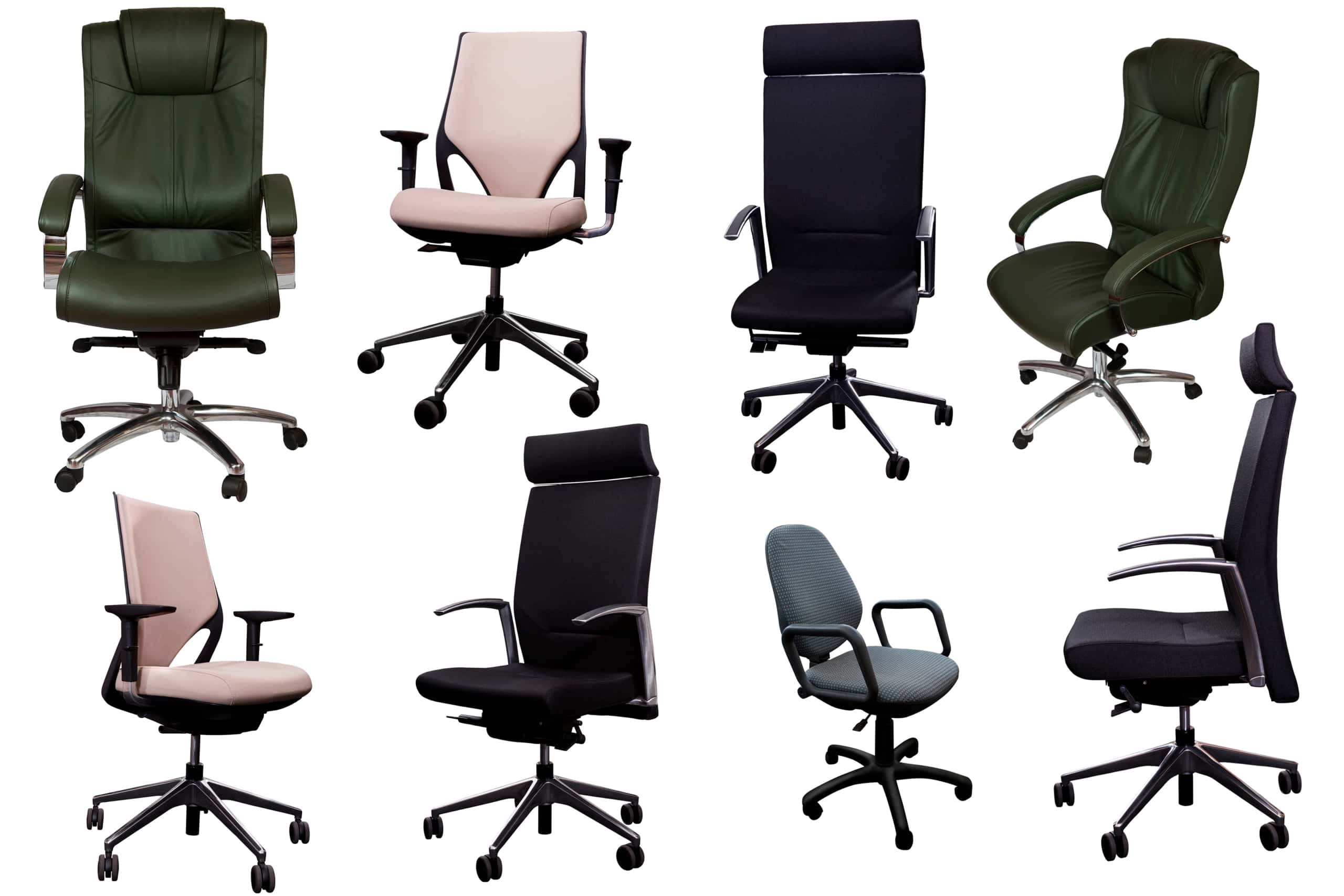Choosing the perfect office chair is crucial for promoting comfort, productivity, and overall well-being. Here are some factors to consider when you are selecting an office chair:
Ergonomics: Look for a chair that is designed with ergonomics in mind. It should have adjustable features that allow customization to suit different body types and preferences. Key ergonomic features to consider include adjustable seat height, lumbar support, backrest tilt, armrest height, and seat depth.
Comfort: Sit in the chair and assess its comfort level. Look for ample cushioning and padding that provide support without being too firm or too soft. The seat should be wide and deep enough to accommodate various body sizes comfortably.

Adjustability: Ensure that the chair has a range of adjustable features to cater to individual needs. This includes height adjustment, adjustable armrests, backrest tilt, and seat-depth adjustment. The more adjustable the chair, the better it can be customized to fit different users.
Lumbar Support: Adequate lumbar support is essential for maintaining proper spinal alignment. Look for a chair that has built-in lumbar support or adjustable lumbar support to provide optimal lower back support and prevent discomfort or strain.
Material and Durability: Consider the materials used in the construction of the chair. Look for high-quality, durable materials that can withstand regular use. The upholstery should be breathable and easy to clean. Mesh-backed chairs provide good airflow and may be more suitable for people who tend to get hot sitting for long periods.

Mobility and Stability: Check the chair’s mobility and stability features. It should have smooth-rolling casters suitable for the type of flooring in your office. The chair should also have a stable base that prevents tipping or wobbling.
Size and Weight Capacity: Consider the size and weight capacity of the chair to ensure that it can accommodate users of different sizes. Pay attention to the seat width, depth, and weight-capacity specifications provided by the manufacturer.
Warranty and Customer Reviews: Look for chairs with favorable warranties that indicate the manufacturer’s confidence in the product. Read customer reviews and ratings to gather insights from other users about the chair’s comfort, durability, and overall performance.


Price and Budget: Set a budget for your office chair and compare different options within your price range. Keep in mind that investing in a quality chair is a worthwhile expense, as a high-quality piece can contribute to long-term comfort and productivity.
Try Before Buying: Whenever possible, try out the chair in person before making a purchase. Sit in it for a few minutes to assess its comfort and adjustability. If trying the chair in person is not feasible, read detailed product descriptions and specifications to make an informed decision.
By considering these factors and prioritizing comfort, ergonomics, and adjustability, you can select an office chair that suits your needs and provides optimal support for extended periods of sitting.


